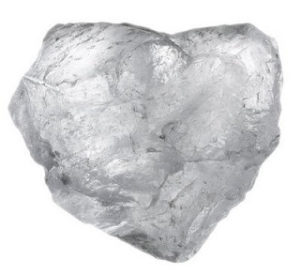Alum /ˈæləm/ is both a specific chemical compound and a class of chemical compounds. The specific compound is the hydrated potassium aluminiumsulfate (potassium alum) with the formula KAl(SO
4)2·12H2O.
Contents
Uses
- Alum is used in the treatment of canker sores in the mouth, as it has a significant drying effect to the area and reduces the irritation felt at the site.
- Alum is the major adjuvant used to increase the efficacy of vaccines, and has been used since the 1920s.
- Alum has been used to stop bleeding in cases of hemorrhagic cystitis
Benefits
1. It is able to strongly coagulate proteins. And clinically it is often used for tightening skin, reducing inflammation, stopping bleeding, reducing perspiration, and arresting diarrhea. In addition, it is also used as a hardening agent;
2. It has a broad spectrum of antimicrobial activity and shows varying degrees of inhibitory effect on a variety of Gram-positive cocci and negative bacteria, some anaerobic bacteria, dermatophytes, and Candida albicans;
3. It has obvious inhibition on Pseudomonas aeruginosa, Escherichia coli, and Staphylococcus aureus;
4. In vitro it significantly resists Trichomonas vaginalis;
5. Alum by bladder irrigation has the hemostatic function;
6. It promotes ulcer healing;
7. Alum can be used in water treatment.
Cautions
All forms of alum can cause irritation of the skin and mucous membranes. Breathing alum can cause lung damage. Aluminum also may attack lung tissue. Because it’s a salt, eating massive amounts of alum can make you sick. Usually ingesting alum will make you vomit, but if you could keep it down, the alum could upset the ionic equilibrium in your bloodstream, just like overdosing on any other electrolyte. However, the primary concern with alum is longterm exposure to low levels of the chemical. Aluminum, from your diet or healthcare product, can cause degeneration of nervous system tissue. It is possible exposure to aluminum could lead to an increased risk of certain cancers, brain plaques or Alzheimer’s Disease.
Interactions
None are recorded.
Other names
Alum, aluminum potassium sulfate, Ming Fan
References
Source: ChineseHerbsHealing, http://www.chineseherbshealing.com/alum/
Wikipedia, https://en.wikipedia.org/wiki/Alum#Medicine
ChemistryAbout, http://chemistry.about.com/od/foodchemistryfaqs/f/Is-Alum-Safe.htm

